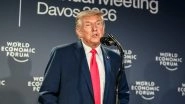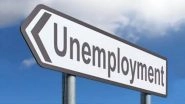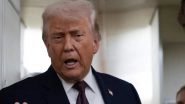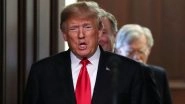Sydney, Nov 6 (AFP) Australia's concerns over internment camps in China's far west, where up to a million people are being held without charge, will be raised this week when the country's foreign minister visits Beijing, she said Tuesday.
Marise Payne said she will register "serious concerns" over the huge facilities in Xinjiang, where hundreds of thousands of Uighurs and other mainly-Muslim minorities are detained in what activists describe as political re-education camps.
The visit is the first by an Australian foreign minister in almost three years, as Canberra and Beijing seek to move past a period of awkward diplomatic relations.
"Obviously we have a very substantial relationship, and it works in the interests of both sides and we're committed to building on our comprehensive strategic partnership," Payne told national broadcaster ABC.
While China is Australia's largest trading partner, ties between the two governments have been strained in recent years over allegations Beijing was interfering in domestic politics and using donations to gain access.
But amid a growing trade spat between the US and China, Payne's visit is seen as an opportunity for Canberra to leverage its economic relationship.
Payne said her government did "have serious concerns about the human rights situation in Xinjiang" and would raise the issue with her opposite number Wang Yi while she is in Beijing on Thursday and Friday.
"There'll be statements made in the (United Nations) Human Rights Council this week, and I will pursue matters in the course of my discussions in an appropriate way," she told Australian broadcaster ABC.
China is expected to be grilled about the camps as it undergoes its periodic review by the UN Human Rights Council on Tuesday. Beijing has defended the facilities, saying they are "vocational education and training centres" and are part of its efforts to combat terrorism in the region.
Australian foreign affairs officials have said that three Australians were detained in camps in Xinjiang last year before being released.
Canberra has also been critical about growing Chinese influence in the Pacific islands, which it views as its backyard, via aid programmes as part of a "soft diplomacy" push.
Some Chinese investments and land purchases in Australia have meanwhile been knocked back over "national interest" reasons, prompting Beijing to accuse Canberra of being biased.(AFP) AMS
(The above story is verified and authored by Press Trust of India (PTI) staff. PTI, India’s premier news agency, employs more than 400 journalists and 500 stringers to cover almost every district and small town in India.. The views appearing in the above post do not reflect the opinions of LatestLY)













 Quickly
Quickly


